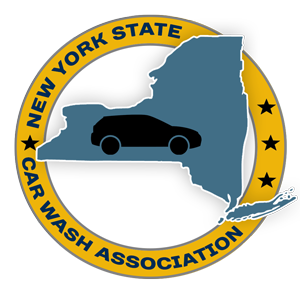Carwash Accountability Law Passes in NYC
By William Y. Crowell, III
On June 29, 2015, Mayor Bill de Blasio signed City Council Introduction 0125-2014 version B, sponsored by City Council Speaker Melisa Mark-Viverito, into law as Local Law 62 of 2015. This local law is known as the carwash accountability law. This law takes effect 180 days after June 29, 2015. Under this law, carwashes would be required to register with and obtain a license from the New York City Department of Consumer Affairs with a biennial fee of $500 for each carwash location. A carwash is defined not to include a business engaged in leasing, renting or repairing cars where the carwash is an ancillary business, or self-service facilities where employees do not provide assistance to customers in cleaning the vehicles. This encompasses convenience stores, gas stations and oil change locations where carwashing is ancillary to the primary business of the facility. The New York City Council Finance Division estimates that there are 300 some carwashes in New York City, of which 90 percent use employees for cleaning assistance which would require them to obtain a license.
This local law, unlike prior versions discussed, includes a two-tiered requirement for surety bonds. A surety bond in the amount of $150,000 is required for licensees to cover potential claims by consumers, wage underpayments or non-payments, or for vehicle damage. A surety bond in the amount of $30,000 is required for licensees that have collective bargaining agreements with their employees or are under an active monitoring agreement by the state or federal government.
The New York Post editorial board, in a July 21, 2015, opinion piece characterized this provision as “…aimed at killing off car washes that aren’t unionized.” The Wall Street Journal, in a June 19, 2015, opinion piece entitled, “Dirty Deeds Done Dirt Costly: A New York scheme to force small businesses to unionize” took a dim view of this approach. There is no discernible public policy distinction which justifies a differential in the surety bond amount based on whether the carwash licensee is unionized. The State and the City enter into numerous contracts where surety bonds are required to be provided by contractors but there is no differential in the amount of the bond based on whether the contractor is unionized. The exposure to loss, which the surety bond protects against, is not impacted by the existence of a collective bargaining agreement.
The New York City Department of Consumer Affairs in determining the issuance or renewal of a license may examine compliance by the applicant with all applicable laws, rules and regulations and also consider the moral character of the applicant. In addition, an applicant must file with the New York City Department of Environmental Protection information on its water source, the oil/water separator system or sand interceptor, and on backflow prevention devices. The carwash is also required to maintain a logbook on monitoring, inspection, and repair and maintenance activities on pre-treatment devices and backflow prevention devices.
The New York City Commissioners of Consumer Affairs and Environmental Protection are authorized to proceed with regulations and processing applications dealing with water issues prior to the effective date of the local law.
The carwash industry in New York City will be responding to this local law in a variety of different ways, including closure and sale of locations, repurposing of locations to operate as self-service carwashes or other businesses, unionization of its workforce, or operating under the new local law with the increased surety bond. Only time will reveal what impact this ultimately has on the carwash industry in New York City.
Carwash owners should be alert to attempts by municipalities to adopt a similar registration and regulatory scheme based on this approach. This local law, particularly if applied outside of New York City, has significant cost impacts on the small business operators who own and operate carwashes. The New York State Car Wash Association remains focused on opposing any similar legislation from being implemented on the state level.
William Y. Crowell, III, is a partner with the Albany-based law firm of Whitman Osterman & Hanna LLC. You can reach him at 518/487-7677.

